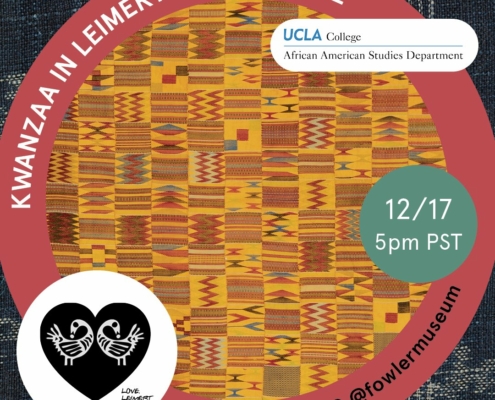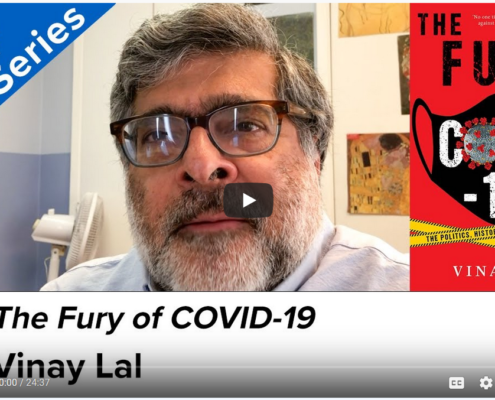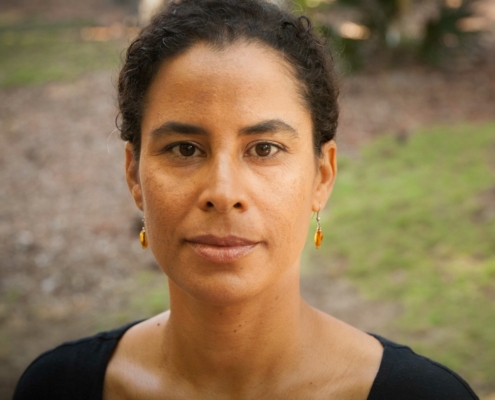
Festivals in the City of Angels: Kwanzaa in Leimert Park Village on December 17 — RSVP Today
Festivals in the City of Angels
This series connects museum…

UCLA Professor Rodriguez-Lonebear Interviewed by Vice News Tonight
Dr. Desi Rodriguez-Lonebear, assistant professor of sociology…

LA Social Science Book Series on the “Fury of COVID-19” with Professor Vinay Lal
Dr. Vinay Lal, UCLA professor of history and Asian American…

UCLA History Professor Elected to Pulitzer Board
Dr. Kelly Lytle Hernandez, professor of African American Studies,…

UCLA Professor Discusses the Cultural Power of Native American Hip Hop
In his essay in The Source, Dr. Kyle T. Mays, UCLA Assistant…

